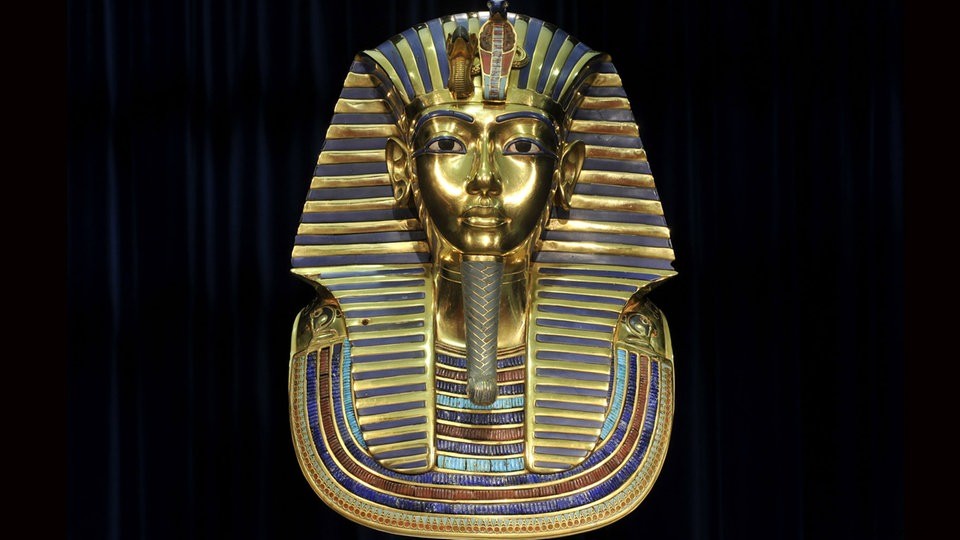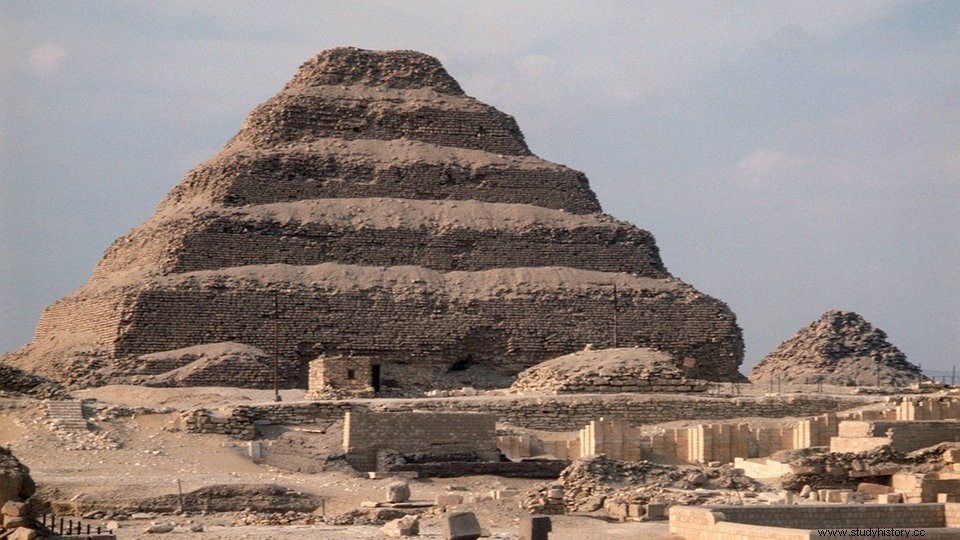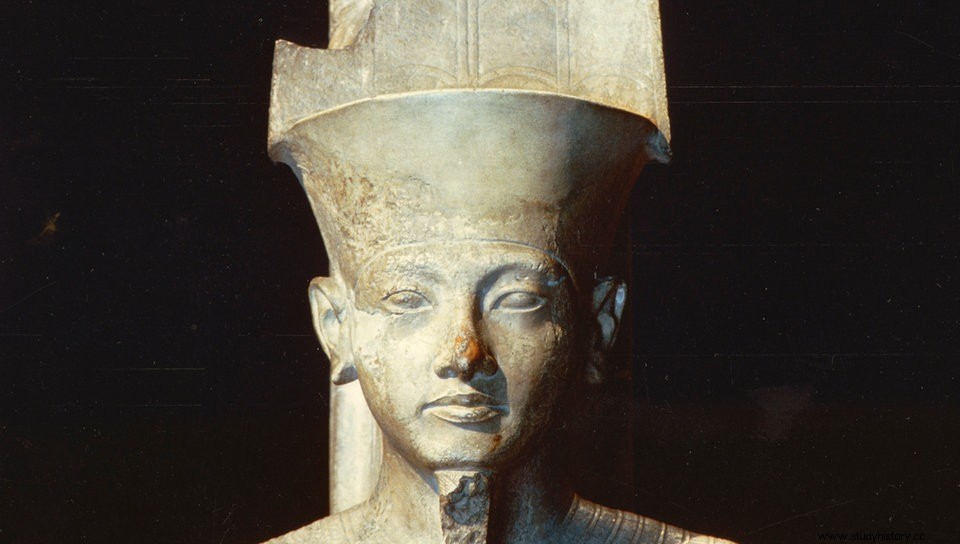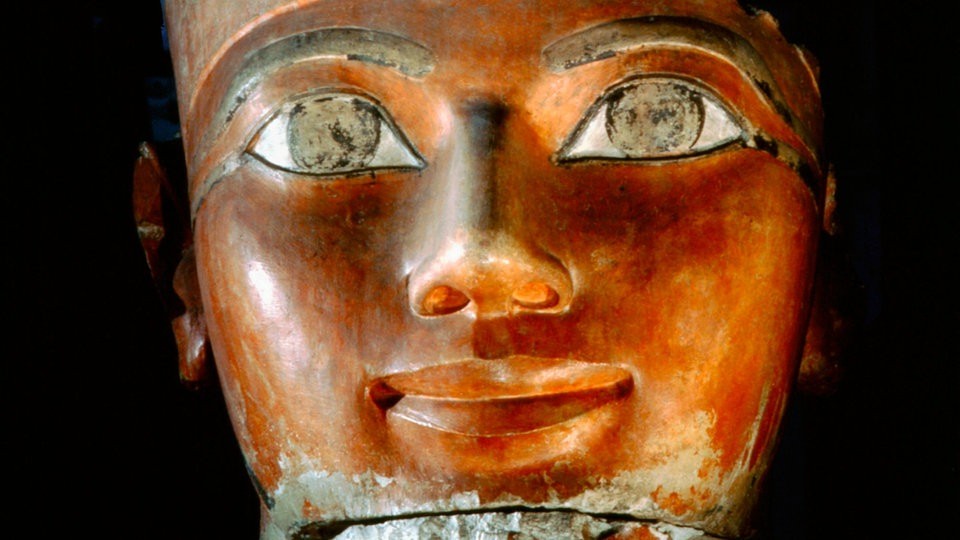In ancient Egypt, the pharaohs were considered gods incarnate. Even after their death, they should continue to watch over their people from the afterlife - their subjects built them monumental buildings for this purpose.
Sole rulers of Egypt
A pharaoh's first duty was to enforce justice among his people. For this purpose, every pharaoh had a close confidante, the vizier. This in turn delegated an army of judges, clerks and directors.
Although the pharaoh was the sole ruler, even in ancient Egypt he had a huge bureaucracy under him that regulated worldly things for him. With a few exceptions, the ancient pharaohs seem to have been rulers but not dictators. They, on the other hand, had a sophisticated legal system.
When one speaks of ancient Egypt, the names of well-known pharaohs such as Tutankhamun, Cheops or Menes often come up. What they all have in common is that they were the sole rulers of Egypt in their dynasty. It is easy to overlook the fact that there are thousands of years between the lifetimes of these pharaohs, in which whole parts of the culture were destroyed and forgotten or developed anew.

What did Tutankhamun know about Menes?
Tutankhamun (around 1333 to 1323 BC), for example, may not have known much more about Pharaoh Menes (around 3032 to 3000 BC) than we do – after all, the two are separated by more than 1600 years of history. Without a precise breakdown of the epochs, it is easy to lose track.
The Old Kingdom (around 2707 to 2170 BC)
Historians often divide the history of Egypt into three eras:the Old, Middle, and New Kingdoms. In the fourth millennium BC, more and more tribes settled in the Nile Valley. Settlement brought with it a higher standard of living, which attracted more and more nomads to the cultural center on the Nile.
This was the basis for the old kingdom, the epoch of the pyramid builders. It is considered the greatest epoch in the entire history of Egyptian civilization. Civil and religious laws as well as scripture were established. The pharaoh was seen as a divine being and had to maintain the world order even after his death.

Many nomads settled down in the Nile Valley
The first pharaohs
One of the first pharaohs of this period was Djoser (around 2690 to 2670 BC). Not much is known about his political activities - but it was he who, with his step pyramid of Saqqara, made the construction of the gigantic pyramids of the Giza plateau possible in the first place.
Snofru (around 2639 to 2604 BC), his son Cheops (around 2604 to 2581 BC), his grandson Chephren (around 2572 to 2546 BC) and his great-grandson Menkaure (around 2539 to 2511 BC) are among those most famous pharaohs ever. The reason for this is not only the gigantic pyramids that they had built, but above all that they led Egypt into a heyday.
Snofru launched expeditions to other countries and established trade relations. Except for Cheops, the rulers from the middle of the old kingdom are said to have been very gentle. Incidentally, Menkaure was married to his sister - back then people still thought that connections among nobles kept the blood clean. This misjudgment often led to disabled offspring.
One reason for the fall of the old kingdom could have been climatic changes around 2250 BC. Scientists suspect that the Nile did not burst its banks for a long time due to a dry period, leaving the soil infertile. During this time, up to 20 percent less precipitation is said to have fallen.

The world's first pyramid
The Middle Kingdom (around 2060 to 1785 BC)
The so-called first intermediate period lay between the old and the middle kingdom. The empire crumbled in her. Anarchy reigned for many decades, the time was marked by social upheaval and famine. Various kings tried to seize power.
It took around 200 years for peace to return. King Mentuhotep managed to hold power for a long time around 2040 BC and to unite the country. He spent 40 of the 50 years of his tenure fighting domestic wars. He is considered the founder of the Middle Kingdom.

Thebes:This is where the Egyptians settled their new capital
After reunification, the capital of the empire was moved from Memphis to Thebes, near the "Valley of the Kings". Among the greatest pharaohs of this epoch - Amenemhat, Sesostris I, Amenemhat III. and Sesostris III. – the country achieved unprecedented wealth.
Sesostris III. occupied Nubia in present-day Sudan and advanced as far as Palestine. But even the Middle Kingdom was soon destabilized by internal power struggles over the throne. It was only a matter of time before another people attempted to conquer the fertile land.
The New Kingdom (around 1570 to 1075 BC)
Around 1650 BC, the Hyksos, an Asian tribe, seized power in Egypt. They surprised the Egyptians with their iron weapons, hitherto unknown to the pyramid builders.
The new rulers also had a significant influence on culture. They brought horses and chariots to Egypt. It took around 100 years for the Egyptian princes to unite and defeat the occupying army.
The victory over the Hykoser heralded the third epoch in ancient Egyptian history:the new kingdom. The many gods were finally replaced by the imperial god Amun, Thebes became the religious capital and Memphis the military capital. In the first centuries, the Egyptians experienced a new heyday:Egypt's borders continued to expand, and Crete and Cyprus were incorporated into the empire.

Imperial god Amun
The road to decadence
A curiosity of the time:the wife of Thutmosis II, Hatshepsut, took over the throne in the 15th century BC and wore men's clothing and an artificial beard for almost the entire 22 years of her reign.
There were no wars under their rule. However, the Amun religion and the cult of the god of the kingdom developed more and more into a problem for the future pharaohs. The priests gained power and a state within a state was formed.
The cult of Amun was briefly banned in the 14th century BC under Amenhotep IV, who later renamed himself Akhenaten. But in the years that followed, he came back even stronger.
The internal division into religious and secular rule permanently weakened the new empire. Extravagance and decadence, inner turmoil and attackers from outside ended the epoch of the new kingdom in 1075 BC. The pharaohs had long lost their reputation and were no longer considered gods incarnate.

Hatshepsut - first woman on Egypt's throne
